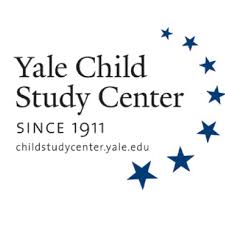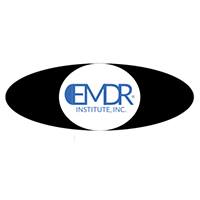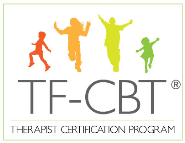Evidence-Based Practices to meet the Mental Health Standard for NCA Accreditation
The National Children’s Alliance (NCA) has established Mental Health Standards as one component of their National Standards for Accreditation for children’s advocacy centers. Essential Component A of the Mental Health Standard requires that: Mental health services are provided by professionals with training in, and who deliver, trauma-focused, evidence-supported mental health treatment. While the NCA has acknowledged that few evidence-based practices have specifically demonstrated effectiveness with child victims of sexual abuse and physical abuse, they identified several programs with research support for work to address the trauma of child sexual abuse and/or physical abuse and specify that clinicians working with CAC clients, whether on staff or by referral, should be trained in one or more of these EBPs.
To assist CAC administrators and clinicians in determining which of these practices is the best fit for their needs, basic information on each of these EBPs is provided below (in alphabetical order), along with links to training resources.
ALTERNATIVES FOR FAMILIES-COGNITIVE BEHAVIORAL THERAPY (AF-CBT)
 Designed for families referred for problems related to the management of anger and/or aggression.
Designed for families referred for problems related to the management of anger and/or aggression.
- Caregivers who are emotionally or physically aggressive or abusive with their children
- Children who experience behavioral dysfunction, especially aggression, or trauma-related symptoms secondary to their as exposure to physical discipline/abuse
- High conflict families who are at-risk for these problems.
- For children/adolescents ages 5-17 and parents/caregivers of children ages 5 – 17
- Clinician training options:
- Orientation training offered through the NCTSN: learn.nctsn.org/course/index.php?categoryid=70
- Agency On-site Training for a Group of Staff (Clinicians, Supervisors)
- Training Program for an Individual Practitioner who Travels to a Designated Trainer Site
- List of upcoming trainings: afcbt.org/training/upcomingtrainings
- cebc4cw.org/program/alternatives-for-families-a-cognitive-behavioral-therapy/
CHILD AND FAMILY TRAUMATIC STRESS INTERVENTION (CFTSI)
 CFTSI is a brief early intervention model for children and adolescents 7-18 that is implemented soon after exposure to a potentially traumatic event, or in the wake of disclosure of physical and sexual abuse.
CFTSI is a brief early intervention model for children and adolescents 7-18 that is implemented soon after exposure to a potentially traumatic event, or in the wake of disclosure of physical and sexual abuse.
- Children and adolescents recently exposed to a potentially traumatic event, or having recently disclosed physical or sexual abuse, and endorsing at least one symptom of posttraumatic stress
- For children ages 7-18
- Clinician training options
- Agency On-site Training
- Information on training: medicine.yale.edu/childstudy/communitypartnerships/cvtc/cftsi/training.aspx
- cebc4cw.org/program/child-and-family-traumatic-stress-intervention-cftsi/
- Agency On-site Training
CHILD-PARENT PSYCHOTHERAPY (CPP)
- CPP is a treatment for trauma-exposed children, who are typically seen with his or her primary caregiver and the dyad is the unit of treatment. CPP examines how the trauma and the caregivers’ relational history affect the caregiver-child relationship and the child’s developmental trajectory.
- For children ages 0 – 5
- Clinician training options
- Large system or Agency training through Child-Parent Psychotherapy Learning Communities
- Agency On-site Training
- List of upcoming trainings: childparentpsychotherapy.com/events/
- cebc4cw.org/program/child-parent-psychotherapy/
EYE MOVEMENT DESENSITIZATION AND REPROCESSING (EMDR)
 EMDR therapy is an 8-phase psychotherapy treatment that was originally designed to alleviate the symptoms of trauma.
EMDR therapy is an 8-phase psychotherapy treatment that was originally designed to alleviate the symptoms of trauma.- For children/adolescents ages 2 – 17
- Clinician training options
- Basic and advanced in person workshops offered at multiple locations across the US.
- List of upcoming trainings: http://www.emdr.com/us-basic-training-schedule/
- cebc4cw.org/program/eye-movement-desensitization-and-reprocessing/
PARENT-CHILD INTERACTION THERAPY (PCIT)
 PCIT is a dyadic behavioral intervention for children and their parents or caregivers that focuses on decreasing externalizing child behavior problems (e.g., defiance, aggression), increasing child social skills and cooperation, and improving the parent-child attachment relationship.
PCIT is a dyadic behavioral intervention for children and their parents or caregivers that focuses on decreasing externalizing child behavior problems (e.g., defiance, aggression), increasing child social skills and cooperation, and improving the parent-child attachment relationship.- For children ages 2-7.
- Clinician training options
- Minimum of 40 hours of face-to-face training with a Certified Master Trainer or Level II Trainer in a hands-on workshop format -or- mentored co-therapy format with a Certified Level I Trainer
- List of upcoming trainings: http://www.pcit.org/pcit-trainings
- cebc4cw.org/program/parent-child-interaction-therapy/
TRAUMA-FOCUSED, COGNITIVE BEHAVIORAL TREATMENT (TF-CBT)
 TF-CBT is a conjoint child and parent psychotherapy model for children who are experiencing significant emotional and behavioral difficulties related to traumatic life events.
TF-CBT is a conjoint child and parent psychotherapy model for children who are experiencing significant emotional and behavioral difficulties related to traumatic life events.- For children ages 3-18
- Clinician training options
- Participation in a live TF-CBT training (two days) conducted by a treatment developer or an approved national trainer (graduate of our TF-CBT Train-the-Trainer Program); or
- Live training in the context of an approved TF-CBT Learning Collaborative
- List of upcoming trainings: tfcbt.org/training/
- cebc4cw.org/program/trauma-focused-cognitive-behavioral-therapy/





